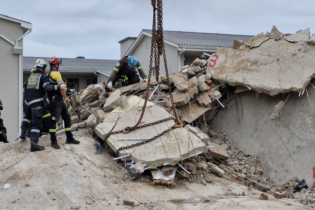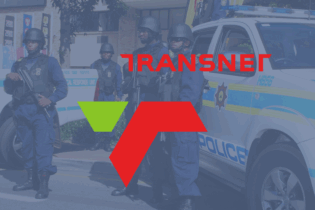The past 18 months have brought into sharper focus the multitude of challenges we face as a nation, and have raised questions on how best to address them going forward.
*By James Wilson, CEO, the Amdec Group What has clearly emerged is that the government – be it at municipal, provincial or national level – cannot adequately, sustainably, and consistently fulfill its obligations to the citizens. Visions of a better, more inclusive future for all need to be elevated beyond political rhetoric, requiring an expertise that the government has demonstrated it cannot satisfactorily deliver on. The role of public-private partnerships and their significance in speeding up bureaucratic governmental processes has taken on more prominence as the pandemic has made the necessity for agile, flexible, timeous, outcomes-driven solutions imperative. What has become clear is that going forward, these ideals must be underpinned by finding solutions that are people-centered and results-driven, and that help build and rebuild communities so that the loose threads of our riven social fabric can be woven back together. Fundamental to many of these ideals is the ability to provide adequate housing opportunities to the millions of South Africans who – due to apartheid spatial planning – either live in informal settlements, or far from work, and for whom access to public services like schools and hospitals continue to be a daily challenge. But housing and the provision thereof continues to be a millstone around various levels of government administrations’ necks. Whether through corruption at the highest levels, or sheer incompetence, we continue to fall short of addressing poverty, inequality, and social injustice. The delivery of decent affordable housing continues to be woefully inadequate, and build quality is often substandard. In short: the government has been unable to deliver affordable housing at the scale, volume, and quality required. It needs help, and fast.South Africa has a housing crisis, and some of the numbers make for grim reading; since 1994, the government has delivered between 100 000 and 120 000 subsidized homes per year – not nearly enough, as there remains a two million housing shortfall with close to 12 million citizens without adequate housing.
The housing problem has been exacerbated by rapid urbanization, a 1.5% annual population growth, and more recently, by the Covid 19 pandemic which has highlighted the fragility of the middle class and which will probably leave many more people without roofs over their heads. The numbers point to a myriad of failures and must be arrested if real progress and change to people’s lives can be affected. Government policy needs to do better at future-proofing our communities and building sustainable models that will help us grow and prosper, and make us better able to weather future storms. The Government has an obligation to supply subsidized housing for households earning R3 500 per month or less and must be encouraged to continue to do so. It would be impossible for private developers to provide high-quality, subsidized housing to this section of the population because it would simply not be commercially viable to do so. Affordable housing differs from subsidized housing in that it is aimed at households with an income not exceeding R22 500 per month – it is generally (and internationally) accepted that this section of the population can afford to dedicate a maximum of 30% of gross income to housing. Private Developers are better equipped to participate in this arena, but affordable housing estates should ideally be located close to cities and CBDs in order to provide residents with access to existing infrastructure and amenities – and acquiring land and development rights within these areas can prove costly and time-consuming. If we are to seriously tackle South Africa’s housing crisis, we need a more pragmatic approach and one that leverages the skill, knowledge, and expertise of private sector industry professionals, with proven track records and a history of delivering high-quality large scale real estate projects to a deadline and within allocated budgets. As a property developer who provides housing across the income spectrum, the Amdec Group calls on the government to be more flexible around densification, rezoning, and the speeding up of approvals for new developments; to reconsider the use and purpose of land that it owns in or close to CBDs, and to partner with the private sector in championing sustainable and affordable homes in South Africa. Affordable housing, delivered via public and private sector collaboration, not only has the potential to redress some of the inequalities of the past but also to build forward-looking communities, underpinned by quality accommodation in areas where they can build more stable and fulfilling lives.






